Bikie-buster Superintendent Jim Keogh hangs up hat
JIM Keogh has been at the centre of controversy for much of his career – and don’t expect that to change once he hands in his badge this week.
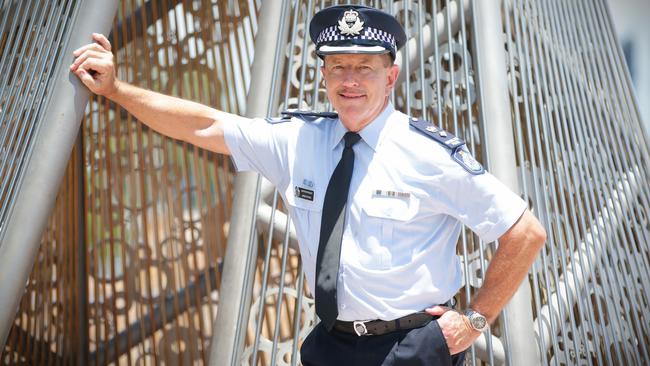
QLD News
Don't miss out on the headlines from QLD News. Followed categories will be added to My News.
JIM Keogh has been at the centre of controversy for much of his career – and don’t expect that to change once he hands in his badge this week.
From a young detective with the infamous Consorting Squad in Brisbane that was at the centre of the Fitzgerald Inquiry, he went on to lead the bikie-busting Rapid Action and Patrols Squad and was once the face of the Gold Cost Cops reality TV show.
After 37 years’ service, he is seriously weighing up a tilt at politics, including running for Gold Coast mayor.
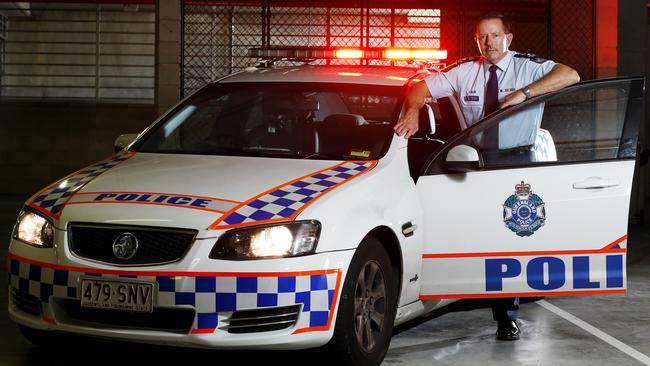
“There are a lot of things I could do once I’ve had a decent break,” Keogh said. “I’ve often thought of media, possibly radio and, yes, there is the option to dabble in politics.”
Keogh, in an exclusive interview with The Sunday Mail, opened up about his colourful career, from police corruption to how he was forced to take the fight to bikies.
Keogh left Salisbury State High School at the age of 15 to work as a corrections officer, but he quickly realised he wanted to be a police officer. He was sworn in at the age of 18 and spent two years at the Acacia Ridge police station.
In 1982 he moved to the Criminal Investigation Branch and was soon placed in the Consorting Squad, which “took the shine out of a lot of great detectives”.
Keogh eventually became the regional duty officer on the Gold Coast, where he spent a decade dealing with Schoolies, Indy and the “wild years” from 2000 to 2004.
“That was out of control. There was a lot of crime,” he said.
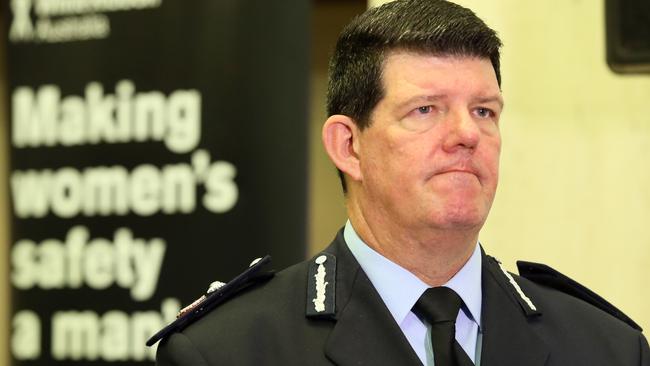
He then took a sea change to Wynnum Police Station, where he planned to retire, until the 2013 Broadbeach bikie brawl forced politicians and police to take a stand against organised crime. Commissioner Brett Pointing at the time said there was only one man who could run a specialised unit to crack down on the outlaw gangs.
“I said no, I didn’t want to do it – I’d done it,” Keogh recalls. “Pointing said, ‘Yes, OK, that’s fine’, then called me back an hour later and said, ‘You start on Monday’.”
Keogh and the Rapid Action and Patrols Squad targeted outlaw motorcycle gangs, drug traffickers and lower-level street crime. He was punted in late 2015 when government funding ran out, with the RAP no longer separate to the Gold Coast police district. Keogh returned to Brisbane, where it all started – and where it’s all about to end.
“I’ve come full circle,” he said. “As they say, all good things must come to an end.”
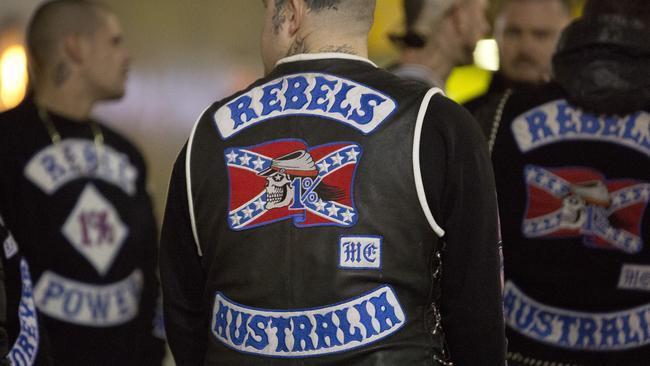
BIKIES
The bikie-busting boss who enforced the Newman government’s VLAD laws, which have since been changed by Labor, said outlaw motorcycle gangs were planning a comeback on the Glitter Strip because there weren’t enough resources poured into fighting organised crime.
Keogh said the 18 bikies involved in the infamous 2013 Broadbeach bikie brawl, who all walked free in 2015 with fines and good behaviour bonds, empowered crime gangs.
“That really served to make them bigger and stronger and allowed them to think they’re beyond the law,” he said. “There was a great lesson learnt from the bikie crackdown and that is, it can be done if it’s properly resourced. You can’t do a piecemeal or a half-arsed job with this. You need a dedicated, focused, well-equipped team and you’ll get results with bikies.”
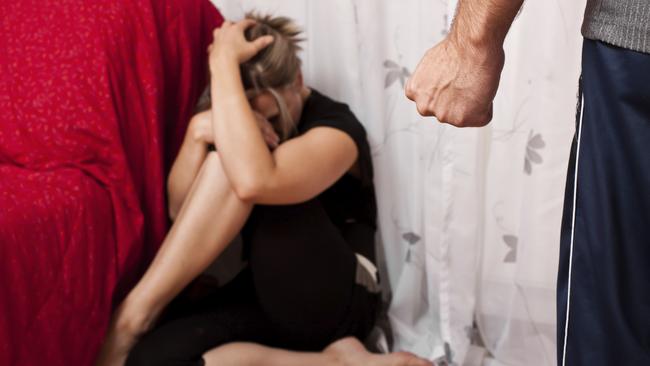
DOMESTIC VIOLENCE
Keogh said domestic violence offenders should pass a mental health check before being granted bail and should have to wear a tracking bracelet once released.
“Domestic violence offenders generally don’t have criminal records because they are only normally fixated and violent towards their partner,” he said. “They should all be evaluated by mental health specialists before they are ever released on bail. We’ll give you your freedom, however you are to stay away from contact with the victim and not be within a 10km radius.”
POLICE BRUTALITY
Keogh said fear was a big factor when police officers made bad decisions.
“The thing about being a copper is you never know what you’re going to be confronted with at work that day, and anyone who tells you there’s not an element of fear with what we do is kidding themselves,” he said.
“We put up with rot, absolute rot. Can you imagine confronting a 6ft 6in man who is ice-affected?
“You’ll often see a video clip of what looks to be police brutality but sometimes the safest way to get them into custody is to get them on the ground and handcuff them using force.
“That’s not to say officers haven’t overstepped the mark before, I’m not going to sugar-coat anything, but, by and large, they’re in the minority.”
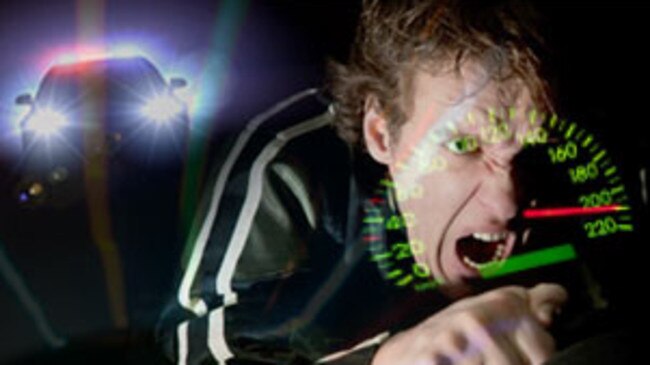
PURSUIT POLICY
Keogh slammed the controversial police pursuit policy that has seen a number of cops charged over “dangerous chases”, including Senior Sergeant Chris Hurley and Senior Constable Barry Wellington. He said officers had to make decisions instantly, and “no guidelines would save them”.
“Policing is a high-risk occupation that requires sometimes split-second decision making, which can be critical,” he said.
“You’ve got guidelines you should follow but at the end of the day, those guidelines aren’t going to drive the car, they’re not going to get you out of the way if someone’s driving at you, and they aren’t going to save the community from a lunatic behind the wheel.”
FITZGERALD
The Consorting Squad in Brisbane in the ’70s was a branch for younger detectives to learn about brothels, bars and clubs. Keogh noticed some red flags before the dirty details of the Fitzgerald Inquiry were aired.
“One day we raided a brothel in Southport and the owner told me I was raiding the wrong place and was supposed to raid the one up the street,” he said. “I thought that was weird but we raided it anyway and I got back to work and copped a hiding from my boss, who said I was an idiot and sent me to the Sunny Coast to work there.”
Keogh said it was difficult to accept the findings of the Fitzgerald Inquiry, but he didn’t let that taint his view of policing.



